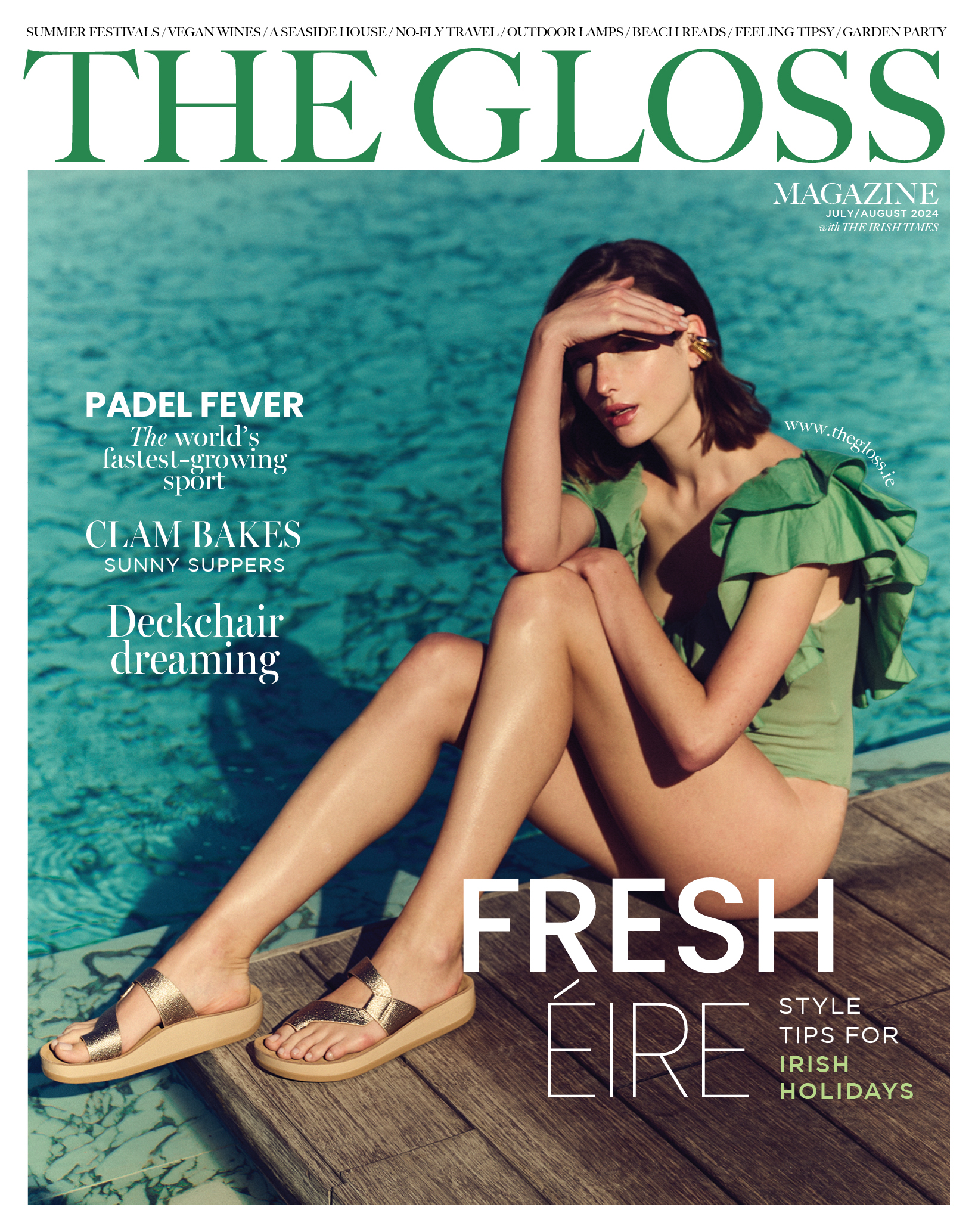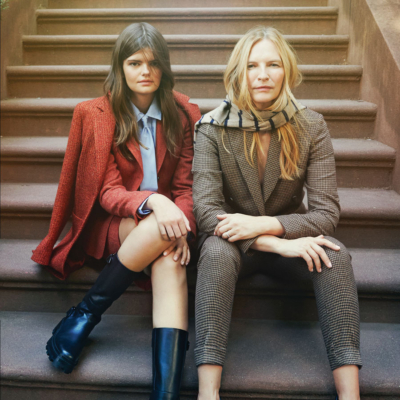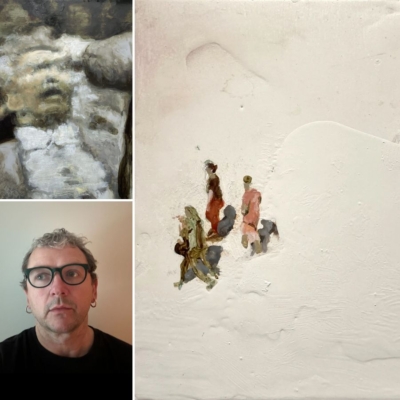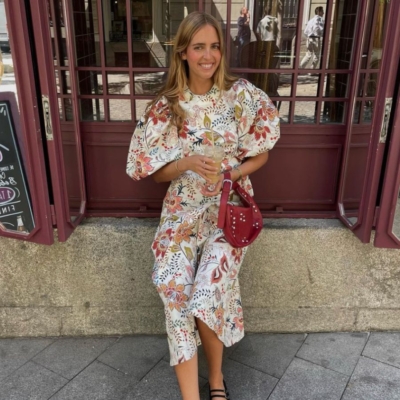Finding the perfect book (or books) for your summer holiday can be a difficult task… books editor Orna Mulcahy shares her top picks from this year’s releases, which may help you whittle down your longlist …
Each month in THE GLOSS Magazine, books editor Orna Mulcahy recommends her top picks from new releases. Ahead of summer holiday season, and panicked book buying trips in the airport or at your local bookshop, we’ve pulled them into one easy-to-read guide. From scintillating thrillers to perfect beach reads, escapist essay collections and moving memoirs, there’s sure to be something in this list for every holidaymaker.

It’s possible to jump into THE CANDY HOUSE (Corsair, €23.66) Jennifer Egan’s sequel to her 2010 Pulitzer Prize-winning A Visit from the Goon Squad, with no prior knowledge of the characters. Readers will probably be drawn back, though, once they’ve read this mind-bending book full of techies and artists and savvy entrepreneurs catching various waves as the action moves from the late 1960s to the 2030s. There’s no central character which allows you to pick your own – for me it’s the single mom anthropologist whose work on patterns of affinity lays the groundwork for Bix Bouton’s (a black Mark Zuckerberg figure, only nicer) invention, Own Your Consciousness, that allows users access to their memory bank and those of others. Just as you’re in deep with one story, another unfolds in what is a true box of candy of a book.
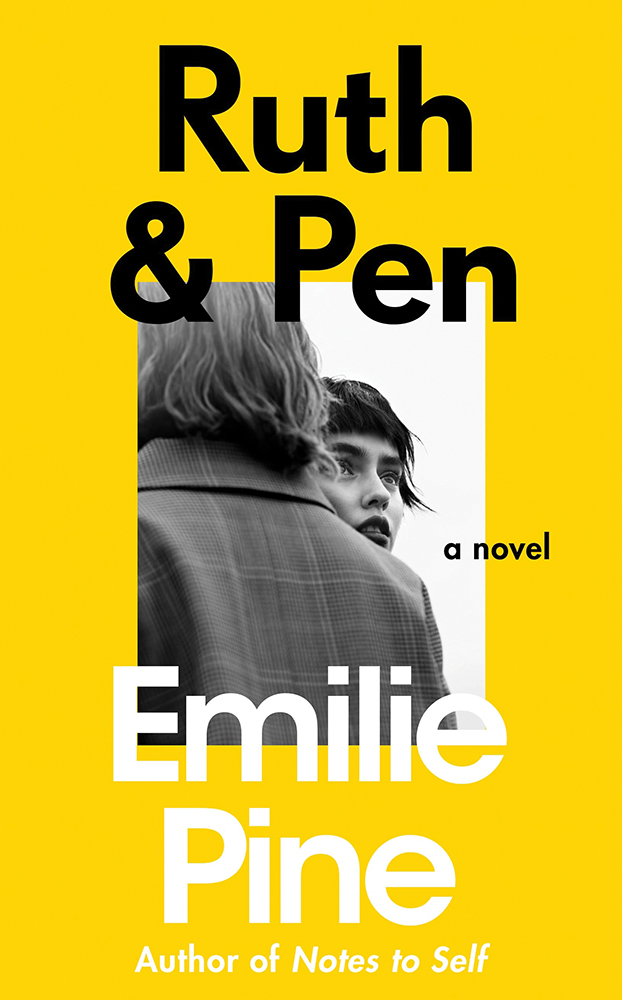
Fans of Emilie Pine’s hit book of essays Notes To Self can look forward to her first novel, RUTH & PEN (Hamish Hamilton, €17.73) which follows two people around Dublin in a single day. Written in lockdown, much of it when Pine was confined to a 2km limit, it’s a love letter to Dublin with its streets and landmarks becoming part of the lightly intersecting stories. Ruth’s marriage to Aiden is on the rocks after their struggles with infertility and Ruth considers if he has already left her and if not, should she leave him? Meanwhile, teenager Pen has a surprise for her friend Alice but their day doesn’t go according to plan. Delicate feelings meet harsh physical realities in this very beautiful book.

It’s a difficult time to be a young woman ricocheting in social media’s hall of mirrors. Louise O’Neill’s new novel IDOL (Bantam Press, €17.73) sees emotional health guru Samantha Miller at the height of her powers, with three million Instagram followers and young women flocking to her live events to bask in her presence. But the past is about to catch up with her and her legions of fans start to turn angry just when she needs them most in this chilling, slightly hysterical story.

ANNA THE BIOGRAPHY by Amy Odell (Allen & Unwin, €23.66) tells the galloping success story of Vogue’s Anna Wintour, famous for her outsize sunglasses and chilly demeanour, who for decades has sat atop the fashion world. Fashion journalist Odell delves into her childhood in a household consumed with the news – her father Charles an editor of whom it was said that “when he walked by a workstation he was so frightening that people would bend like a field of wheat under a wind”. Wintour has a similar effect, according to Odell, staff flattening themselves against walls as she passes, but the book majors on Wintour’s superb sense of timing and business acumen that, at 73, keeps her very much in the game.

Speaking of doyennes, Tina Brown’s THE PALACE PAPERS (Century, €23.66) picks over royal gossip of the last 25 years with heavy emphasis on Megxit and Prince Andrew. The blurb promises “powerful revelations, nuanced details and searing insight”. Brown, a one-time Vanity Fair editor has good sources so expect top-notch gossip if that’s your thing.

Martina Devlin has written a charm of a novel based on the life of Edith Somerville, an Irish writer of the turn of the 20th century whose Oirish characters made the Somerville and Ross series she co-wrote with her cousin bestsellers. EDITH (Lilliput Press, €16) opens in the days of Anglo Irish Treaty negotiations when Republicans roam the land, eager to burn out Ascendancy families. Edith manages to keep the family home, Drishane in Castletownshend, safe but lonely for the old life she increasingly seeks comfort in transcendental moments when she converses with her cousin and their most popular creation, Flurry Knox.

Sara Baume’s latest novel SEVEN STEEPLES (Tramp Press, €15) tells a powerful story of a couple pushed to the margins. Bell and Sigh leave the city but not in the cheery hopeful way of the pandemic, setting up their workstations in a remote location with great views and speedy broadband. It’s not that story. Moving to a rundown rental by the sea, they live frugally and lose touch with family and friends. Years pass and the house gently disintegrates around them. Their vocabulary narrows, they dress from a shared pile of charity shop clothing and people in the town avoid them. Turn back! I found myself saying to the page, but on they go in this very affecting tale of our times.

For his second novel, Adrian Duncan plucks real-life 19th-century Russian mathematician Nikolai Lobachevsky from history and places him in the Irish bog in the early 1950s in THE GEOMETER LOBACHEVSKY (Lilliput, €15). Sent from Russia to assist in a Bord na Móna bog, he’s reunited with Rhatigan, an engineer he has met in the past, and who has told him a terrible secret. Nikolai knows the survey to be flawed, given the shifting water table of the bog, but his own situation is unstable too, given a sinister summons he’s received from Moscow. Securing a new identity as a Polish pilgrim, he settles on a tiny island in the Shannon, as his health fails and he longs to return home. Duncan skilfully melds past and present in a story layered with betrayal and dread.

There’s a delicious scene in TRESPASSES (Bloomsbury, €17.90), Louise Kennedy’s brilliant debut novel in which Cushla, a young Belfast teacher and part-time bar worker, meets her married lover in a Dublin hotel that’s swarming with nuns and priests (has to be Wynn’s). When they’ve wined, dined and made love, she buys some religious souvenirs to take home with her. But little good can come from the relationship given their religious and political differences and someone is going to get badly hurt.
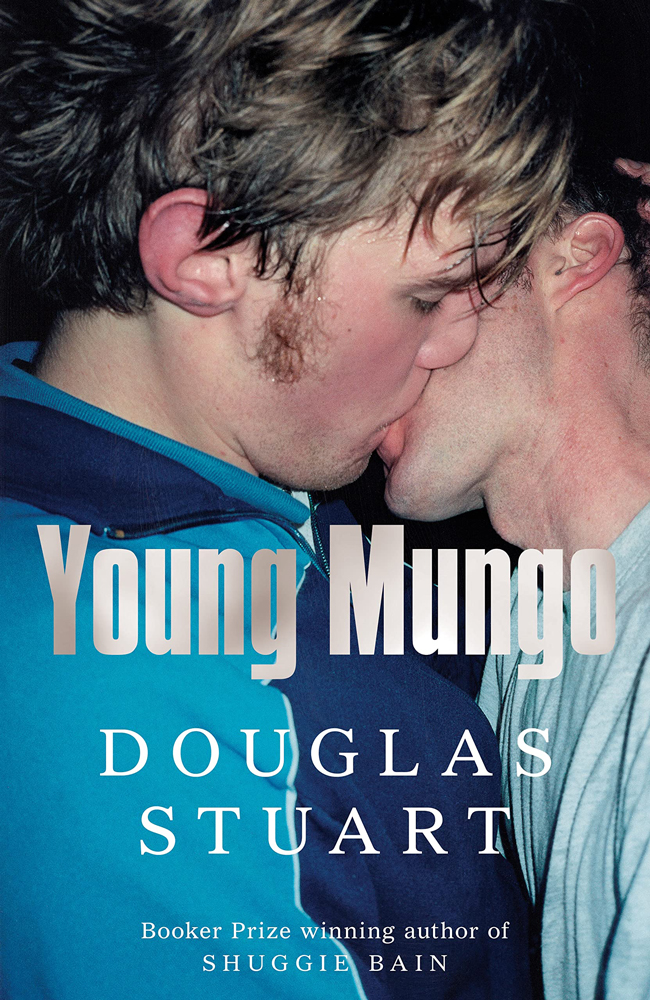
The sectarian divide is just as dangerous in 1990s Glasgow where Douglas Stuart returns for his second novel YOUNG MUNGO (Picador, €17.90)). Like his Booker Prize-winning Shuggie Bain, it takes place in a tough neighbourhood with an alcoholic mother, but there’s a further complication for teenager Mungo and his friend and lover James who come from opposite sides of the sectarian divide. The writer, who is based in Manhattan where he had a 20-year career in the fashion business, is determined to eschew any traditional evocations of his homeland where he grew up never having seen its famous beauty spots except on the lids of biscuit tins. Nicola Sturgeon says Young Mungo is even better than Shuggie Bain.

In Nina Stibbe’s excellent ONE DAY I SHALL ASTONISH THE WORLD (Penguin Viking, €17.90) odd but ambitious Norma and sweet, pretty Susan somehow manage to stay friends through petty betrayals and downright back-stabbing. Ice-cold Norma will, over time, take almost everything that Susan loves, including her wedding dress, but they circle back to one another in the end. Laugh-out-loud funny in parts.

NONE OF THIS IS SERIOUS (Cannongate, €15.50) is the debut from Dublin writer Catherine Prasifka whose tale of Dublin student life is played out under a purple-tinged gash that has opened up in the sky. Prasifka, who will inevitably be compared to Sally Rooney – to whom she’s related – brings a sharp perspective on the poison of social media as her characters struggle to find jobs and meaning.

In Delia Ephron’s LEFT ON TENTH (Penguin, £16.99) we meet Ephron at 72, a widow after 37 years of marriage, connecting with new man, psychoanalyst Peter. Her happiness bursts from the page – the sex! – but so too does the panic when illness sets in. The couple marry in a hospital room and together face Ephron’s radical cancer treatment, helped by a generous circle of friends. A lesson in how to ask for help and appreciate what is given.

Meet the Booths – settled in a cabin in rural America, waited on by slaves and supported by an eccentric absent father – a famous Shakespearean actor who descends occasionally to forbid the eating of meat and to exhume a dead daughter to say goodbye. BOOTH (Serpent’s Tail, €17.80) is the latest novel from American writer Karen Joy Fowler whose Booker shortlisted We Are All Completely Beside Ourselves reportedly sold a million copies. Stars rain down on the unfortunate heads of the Booth children in this glorious, alcohol-soaked family saga set against real events of American history.

Long live Margaret Atwood. At 82, the twice Booker prizewinner is relevant as ever with a new book of essays BURNING QUESTIONS (Chatto & Windus, €23.80) plucked from the last 16 years of writings. During that time, the world discovered that that her 1985 novel The Handmaid’s Tale might not be fiction after all, and that the world was well on its way to setting itself on fire. Atwood’s writing is crystal clear and very engaging as her view takes in the rise of Trump, the tech boom, the pandemic, the loss of Ursula Le Guin, to name but some of the topics covered.

Singer-songwriter Dolly Parton has gazillions of record sales under her rhinestone belt but, hell, there’s a novel in there too, and now it’s out in the world, thanks to a collaboration with mega-bestseller James Patterson who has donated much of his wealth to independent bookshops. RUN ROSE RUN (Century, €23.80) is a breakneck read about Annie Lee, a 25-year-old singer who dreams of conquering Nashville if only she can let go of her hardscrabble past. A fast read that comes with its own songbook.

Jessamine Chan conjures up a whole new level of parental guilt and blame in THE SCHOOL FOR GOOD MOTHERS (Ebury, €15.50) in which hassled mother Frida leaves her baby at home and skips to the office, only to be picked up by the police. In the furore the follows, Baby Harriet is handed over to Frida’s ex, the annoyingly named Gust, now living with Susanna, while Frida is convicted for neglect by the State and duly punished. A chilling, believable read from Chan, a first-time author.

For his 17th novel, Patrick Gale plucks a fine kind of mother from obscurity – Laura, who single-handedly brought up the English poet Charles Causley. A laundress, Laura managed to make a home for her war-damaged husband, but her love was reserved for Charles, a gifted child and World War II naval coder who spent much of his life in the place where he was born, Launceston in Cornwall. MOTHER’S BOY (Tinder Press, €14.99) is a gentle read that skips over some of the harsh realities that would have faced Laura as a war widow taking in washing.

In REPUTATION (Simon & Schuster, €14.99) high-flying MP Emma Webster’s life takes a nightmarish turn when the body of a tabloid journalist is found in her home. Sarah Vaughan’s latest novel boils over with online abuse as Emma is accused of murder, even as her own daughter is embroiled in an online scandal of her own.

Lucy Foley follows her best-selling The Hunting Party with THE PARIS APARTMENT (Harper Collins, £14.99), a creepy tale set in an old Paris house with a horror in the attic. Jess has come to visit her brother, a journalist, in the swanky apartment a friend has loaned him, but now he’s disappeared, the apartment empty save for a bloodstained cat and a smell of bleach. It doesn’t take Jess long to find out that the other residents are lying and want rid of her. Meanwhile, the concierge knows all the secrets in this grisly tale that could be just the antidote you need to Emily in Paris.

Sebastian Barry has called it “Terrible, dreepy, dark February” – in other words, an ideal month for staying in with some good books. And it’s a bumper month for fiction with bestselling Marian Keyes bringing back her most popular ever character, Rachel, after 25 years, in AGAIN, RACHEL (Penguin, €14.99); Monica Ali of Brick Lane fame publishing her first book in a decade, LOVE MARRIAGE, (Hachette, €13.99) and Tessa Hadley also back in business with FREE LOVE (Jonathan Cape, €20) another quiet domestic drama with devastating undercurrents.

I was hooked from page one of THE COLONY (Faber, €14.99) by Wicklow writer Audrey Magee. It’s the summer of 1979, a particularly violent one for sectarian killings in the North, a time of upheaval on a remote island off the west coast where an English painter, Mr Lloyd, has exiled himself to paint, determined to do his best work in isolation and win back the respect of his art dealer wife. Meals and shelter are provided by an island family still in mourning for their menfolk lost at sea. Young widow Mairead and her mother keep house, son James longs to escape, while a grandmother’s Gaelic is being studied by fellow guest, JP, a Frenchman preparing his thesis on the linguistic purity of the island. Magee, whose debut novel was shortlisted for the Women’s Prize for Fiction, has written a beautiful page-turner in which not a lot happens save for the making of tea, the killing of rabbits and the sparkle of waves crashing to shore but as jealousy and longings build on the island, news intrudes about the victims in the North. The connection becomes clear when young James, who shows talent as an artist, is encouraged by Lloyd to return to London with him to attend art school, but even as Lloyd works on a vast symbolic painting of island life, his young protegé threatens to outshine him. Storm clouds gather and someone will have to pay by summer’s end.

Niamh Campbell, who won the Rooney Prize for Irish Literature with her first novel, This Happy, has a new novel, WE WERE YOUNG, (Weidenfeld & Nicolson, €19.60) in which charming photographer Cormac returns to Dublin after a stint away that ended badly with his ex, Alva. Nearing 40, he reclaims the city, complete with keys to a friend’s city centre apartment, but even as he picks up with an old friend Alice who puts work his way, and reconnects with a former love, Nina, he keeps searching, briefly thinking that young dancer, Caroline, might be the answer. Accustomed to being central to others’ worlds, Cormac finds himself gradually heading for the margins, nostalgic for pre-Celtic Tiger days and, possibly, the oldest swinger in town, in this sophisticated, sad tale of a Dublin life.

I loved the strange stories in HOW TO GUT A FISH (Bloomsbury, £12.99) a superb if disturbing debut collection from west of Ireland writer Sheila Armstrong in which life seems normal until things get very strange in a way that will keep you awake at night.

What connects the abominable goings-on at a mother and baby home in rural county Cork and marital difficulties between the writer Agatha Christie and her husband Archie? In THE CHRISTIE AFFAIR (Mantle, €13.99) American writer Nina de Gramont concocts a twisty tale in the Christie tradition, taking the real-life disappearance of the author for a period of eleven days in 1926 and weaving in threads of loss and revenge to create a satisfactory reveal.
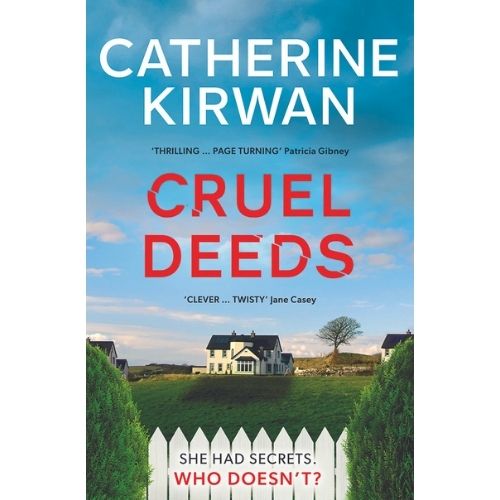
Catherine Kirwan’s cleverly plotted CRUEL DEEDS (Hachette, €14.99) is a second outing for Cork solicitor-cum-investigator Finn Fitzpatrick whose colleague Mandy is found beaten to death in a derelict house. What could have befallen the brilliant lawyer who appeared to have it all – brains, money and a gorgeous family? Finn uncovers hidden files, mysterious bank accounts and dodgy clients but also the thing she most dreads – a connection to her own boyfriend who, all of a sudden, is acting strangely. Highly recommended.
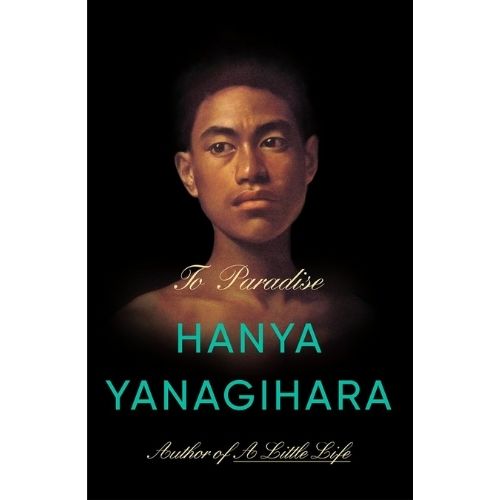
Following her agonising 2016 blockbuster, A Little Life, Hanya Yanagihara’s long-awaited third novel is here. TO PARADISE (Picador, €23.50) is set in three different versions of America, bound together in another huge read that runs to over 700 pages. It opens in a utopian version of 1890s New York, then moves forward to 1993 Manhattan – in a city overwhelmed by the AIDS epidemic – with the final instalment set in 2093, in a world riddled with disease and governed by totalitarian rule. Yanagihara is expert at lending beauty to sheer awfulness and pain and readers will find the same intimacy among friends in these richly detailed stories, each of which would make a satisfying novel in itself.
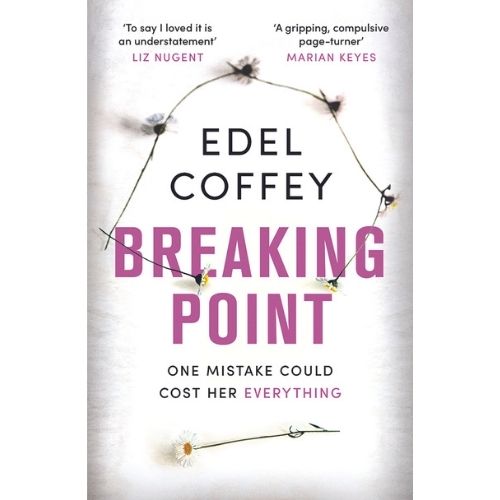
Journalist and broadcaster Edel Coffey leaps into fiction with her superbly shocking BREAKING POINT (Sphere, €17.60) which grips from the get-go. Here we have beautiful talented doctor and parenting guru Susannah who has it all but is buckling under the pressure of doing it all against the clock. One hot morning she leaves her baby strapped into her car seat and ignores the car’s alarm as she attends to an urgent hospital case. Nothing could be worse, and soon her entire life is being pulled apart by the media in the run-up to a devastating trial in which working mothers everywhere will feel judged.

I flew through TIDES (Granta Books, €15.20), a fine debut novel from Canadian British writer Sara Freeman who chooses a shuttered beach resort as the setting for a bleak winter’s tale. Mara has fled her family having lost a child and taken liberties with her brother’s baby and is now penniless, living secretly in the attic of a wine shop where she has found a job. Her boss Simon is depressed – his wealthy wife having left with their child – and at first he doesn’t notice Mara’s threadbare existence, which involves bathing in freezing water and eating leftover cheese from the shop, but as their relationship deepens, over many bottles of wine, happiness seems possible. But Mara is fully aware of the ways life can trip you up and knows when it’s time to leave.
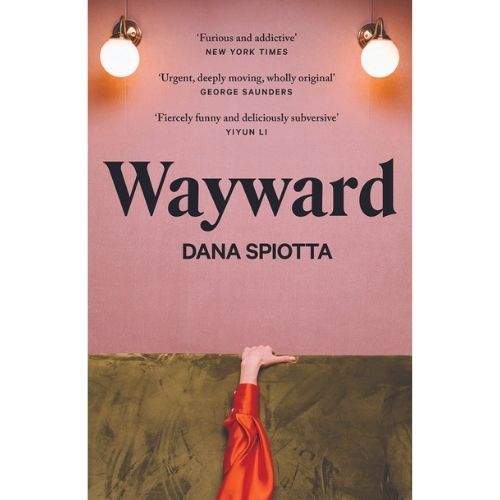
In Dana Spiotta’s WAYWARD (Virago, €16.45), another runaway wife, Sam Raymond, is driven almost crazy by menopausal hot flushes and sleep deprivation, not to mention fury at the election of Donald Trump. Fleeing her suburban existence which includes a difficult daughter and a sick mother, she buys a wreck of a house in upstate New York to renovate while she seeks to find herself again.

Spiotta, a writing professor at Syracuse University, has sometimes been compared to Claire Messud, whose latest book, A DREAM LIFE, (Tablo Publishing, €15.20) is set in Sydney in the early 1970s where Alice finds herself transported from a small New York apartment to a swanky residence on the shoreline thanks to her husband Teddy’s job. It’s just too much house to handle but when Simone Funk arrives to help out, she fits in a little too well with everyone in this slight but sunny domestic drama.
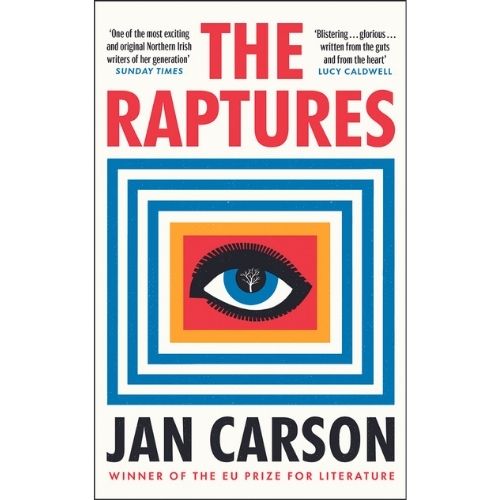
Belfast writer Jan Carson’s THE RAPTURES (Doubleday, €14.99) plunges the reader into the home of the Adgers, religious fanatics in smalltown Northern Ireland where EastEnders is banned and so are school trips to even remotely exciting places. Hannah yearns to be like the others at school, that is until her classmates start dying of a mysterious illness, and only she can talk to them after they have gone. It’s an unexpected page-turner with a heart.

I’m looking forward to Herve le Tellier’s thriller THE ANOMALY (Michael Joseph, €17.50) which became France’s biggest pandemic read, selling over a million copies. The 64-year-old author, a former maths teacher, describes the book as “experimental, bizarre and a little crazy”. An Air France flight goes through a terrifying bout of turbulence on a flight from Paris to New York, after which those on board discover they have been duplicated and have to confront their other selves. Sounds highly existential and enjoyable.
LOVETHEGLOSS.IE?
Sign up to our MAILING LIST now for a roundup of the latest fashion, beauty, interiors and entertaining news from THE GLOSS MAGAZINE’s daily dispatches.


